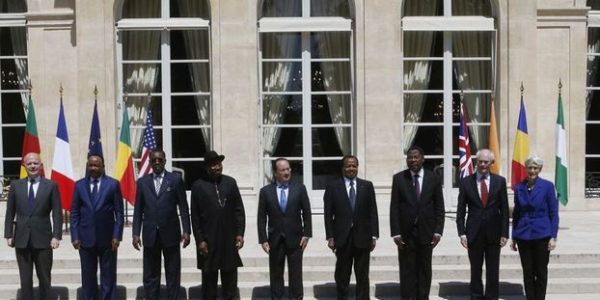The war against the terrorist sect Boko Haram could resume in intensity under the auspices of the international community in order to provide an appropriate response against this obscurantist movement whose renewed activity is reflected in armed incursions, kidnappings and terrorist attacks. suicides in Cameroon, Niger, Nigeria and Chad, this region of Lake Chad where the terrorist movement still nurtures the ambition to create a Khalifa.
According to reliable information, unless there is a last-minute change for “timing reasons”, Abuja, the Nigerian capital is expected to host an international summit on the security situation in the Lake Chad region by March. In addition to the United Nations, the participation of the United States, Russia, France, etc. is announced, not to mention the African Union and the countries directly affected by the terrorist attacks.
A few days ago, the Cameroonian Head of State Paul Biya received Ambassador Joseph Keshi, President Muhammadu Buhari’s special envoy, who came “to convey a special message and to discuss certain subjects of bilateral cooperation”. Stating in particular that “we are neighbors and within this framework, we have multiple exchanges whether it is between the States or then between the populations living on both sides of the common border”, the Nigerian emissary did not failed to recall “the commitment of our two countries in the fight against Boko Haram”.
On this issue, some diplomatic cables as well as security sources are on the same page, confirming in particular “high-level” contacts among the pre-square countries. In this perspective, Presidents Paul Biya of Cameroon, Muhammadu Buhari of Nigeria and Idriss Déby of Chad have increased consultations recently, some having reported a probable visit to Cameroon by the presidents of Nigerian and Chad.
Seven years after the summit in Paris, France, where war was officially declared against Boko Haram, the international community, then quite involved at the start, gradually stepped aside, leaving Cameroon almost alone at the front, Niger, Nigeria and Chad whose armies make up the Joint Multinational Force (FMM) to face the enemy whose asymmetrical mode of operation is difficult to control.
Between strategic differences, lack of commitment from the international community and operational difficulties on the ground, cracks appeared within the coalition, which had provoked the anger of President Idriss Déby, who had publicly threatened to no longer send the troops. Chadian women fight beyond national borders. And yet, testimonies agree that the Chadian army presents itself as one of the most effective against terrorism, as evidenced by its involvement in other countries of the continent.
After the G5 Sahel summit earlier this week in Ndjamena, Chad where this grouping with the involvement of France announced the intensification of the fight against terrorism in Burkina Faso, Mali, Mauritania, Niger and Chad, the summit against Boko Haram should make it possible to better tighten the grip on terrorism. According to sources familiar with the matter, the expected summit should focus on the financing of the war, while some countries previously engaged alongside the FMM, in this case, the United States and France are rather showing discreet, their elite units deployed on the ground having been “overnight” dismantled.



